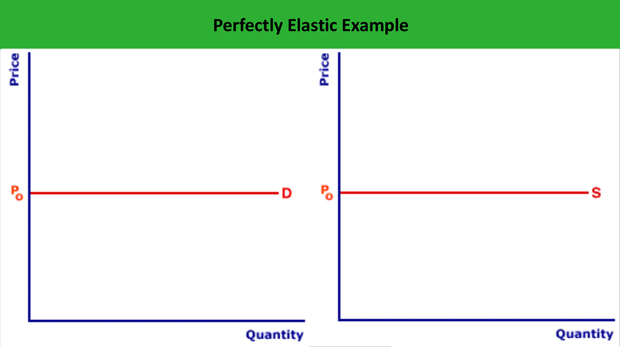Definition: A perfectly elastic demand curve is represented by a straight horizontal line and shows that the market demand for a product is directly tied to the price. In fact, the demand is infinite at a specific price. Thus, a change in price would eliminate all demand for the product.
What Does Perfectly Elastic Demand Mean?
Contents [show]
What is the definition of perfectly elastic demand? In a market that has perfectly elastic demand for a product, even a small change in price causes an infinite change in the quantity demanded. Therefore, in a perfectly elastic demand, an infinite number of quantities demanded are associated with a given level of price.
When the price changes, the quantities change to infinity. The price may change if consumers have access to a large number of substitute goods that can meet their needs or if suppliers have a large number of substitute goods that they can produce. The same is true for products with a perfectly elastic supply curves.
Here’s an example of both curves.

Let’s look at an example.
Example
Company A produces oranges in Boca Raton, Florida. The company sells the oranges for $1.80 per pound. However, lately, it faces some cash flow problems because it had to change equipment and production machines. So, the company’s management decides to increase the selling price to $1.92 per pound. Is the demand perfectly elastic for oranges in Florida?
The answer is yes. There are many companies that produce oranges in Florida and compete for the lower price. If a company faces strong competition from firms that produce the exact or a very similar product and can sell at a lower price, then the demand for this product is perfectly elastic. Consumers can purchase many substitute goods that can meet their needs and switch from one supplier to another following a change in the price of the product.
From the perspective of supplies, given that all firms are seeking for profit, the cost of production determines the price of a product. For instance, if the total of all the costs involved, such as costs to establish the orange orchard, the cost of seeds, the costs of fertilizers, labor costs, etc. is $150 per crate of oranges and each crate weighs $120 pounds, then the cost per pound cannot be less than $1.25. To make a profit, orange companies sell for $1.80 per pound. If consumers are not willing to pay $1.80, the company that sells lower than $1.80 but higher than $1.25 will make a profit and will continue the supply of oranges.
Like most economic theories, these markets rarely exist in the real world.
Summary Definition
Define Perfectly Elastic Demand: Perfectly elastic demand occurs when demand for a product is completely reliant on the products price making it infinity at a specific price.


